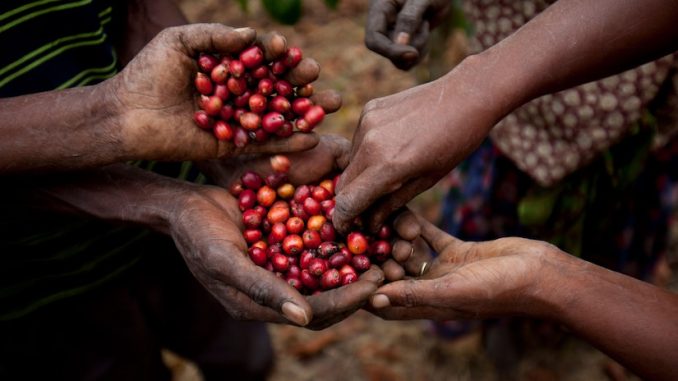
By Seyi Gesinde
In the bustling heart of Kampala Uganda, where the vibrant markets hum with life, the fate of the nation’s currency hangs in the balance. The Ugandan shilling, a symbol of economic stability, stands steady on Tuesday morning, March 19, 2024, yet whispers of anticipation linger in the air.
Reports showed that at precisely 0930 GMT, as the sun casts its golden rays over the city, commercial banks echo with the voices of traders. Their eyes are fixed on the electronic boards, where the digits dance with the promise of prosperity. The shilling is quoted at 3,875/3,885, a subtle shift from the previous day’s closing rate of 3,880/3,890.
But behind these numbers lies a tale of two forces: the exporters of Uganda’s prized coffee beans and the silent demand of importers. It’s a delicate dance, where each move on the global economic stage sends ripples through the nation’s markets.
In the lush hills of Uganda’s countryside, coffee farmers toil under the African sun, nurturing the beans that will soon traverse oceans to lands far beyond. As the harvest season peaks, a wave of dollars flows back home, bolstering the nation’s reserves and lending strength to the shilling.
ALSO READ: Nigerian fintech Zone raises $8.5 million seed funding to scale decentralized payments.
Meanwhile, in the maze of the streets adorned with stalls and storefronts, importers tread cautiously, their demand subdued in the face of a shifting economic landscape. The ebb and flow of global trade dictate their actions, as they navigate the currents of supply and demand.
Traders gather in smoky cafes, sipping steaming cups of Ugandan brew, their conversations a blend of speculation and analysis. They speak of trends and forecasts, of market sentiment and geopolitical shifts. Each word is a thread woven into the fabric of Uganda’s economic narrative.
As the day progresses, the rhythm of the markets holds steady, guided by the invisible hand of commerce. The shilling, a silent spectator to this intricate ballet, remains resilient, a testament to the resilience of the Ugandan economy.
And so, beneath the African sky, where the echoes of history mingle with the aspirations of the future, the story of Uganda’s strengthening shilling unfolds. It is a story of perseverance and progress, of coffee beans and currency, woven into the tapestry of a nation’s journey towards prosperity.

